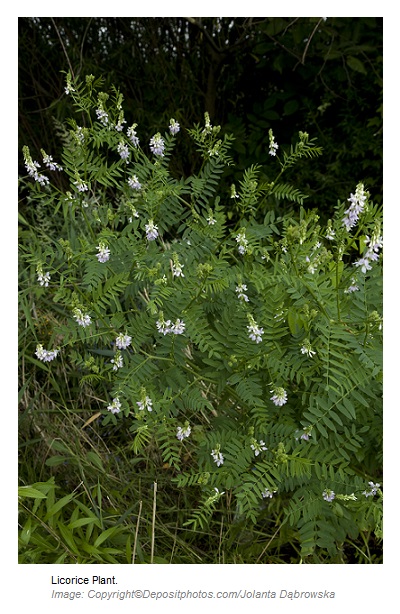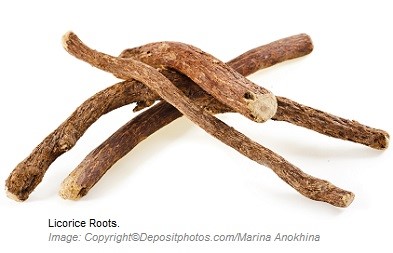Licorice is an adaptogenic herb used extensively throughout the world. Also known as sweetwood, sweetroot, the great detoxifier, and the great adrenal supporter, licorice has anti – viral, anti – bacterial, and anti – inflammatory properties.
The active ingredients in licorice are glycyrrhizin, flavonoids, anethole, and isoflavones. The sweetness of licorice results from glycyrrhizin, which is about 40 times sweeter than sugar.
Athletic Benefits of Licorice:
- Helps recover from overtraining syndrome.
- Has a protective effect against overtraining syndrome.
- Reduces inflammation in strains and sprains.
- May accelerate recovery from sports injuries.
Non – Athletic Benefits of Licorice:
Licorice may be beneficial in the following conditions:
- Adrenal exhaustion.
- Infections.
- Peptic ulcer.
- Gastritis.
- Gastroesophageal reflux disease (GERD).
- HIV support.
- Asthma.
- Chronic obstructive pulmonary disease (COPD).
- Chronic fatigue syndrome.
- Inflammatory bowel disease (IBD).
- Cough.
- Sore throat.
- Canker sore.
- Eczema.
- Indigestion.
- Hepatitis.
- Colic.
- Constipation.
- Arthritis.
- Stress.
- Melasma.
Dosage and Side Effects:
Licorice is available in two forms: standardized licorice and DGL (de – glycyrrhizinated licorice). Licorice can be used as dried root 4 – 6 grams a day, standardized extract 500 – 1500 mg a day, DGL 500 – 1500 mg a day, or chewable DGL 500 – 1500 mg a day. The chewable form should be chewed about 20 minutes before meal and bedtime.
Continuous consumption of licorice is discouraged, and we strongly recommend “periodization”, which means consuming licorice for 4 – 6 weeks, then tapering the dose over the next two weeks to nothing, and finally stopping taking for two weeks before resuming.
Licorice could cause some side effects. Glycyrrhizin – containing licorice may cause pseudoaldosteronism, which is characterized by increased blood pressure, water retention, fatigue and headaches. Also long term consumption of glycyrrhizin may lower testosterone level.
Licorice should be avoided in the following conditions:
- Heart disease.
- Congestive heart failure.

- Edema.
- Liver disease.
- Kidney disease.
- High blood pressure.
- Hypokalemia (low potassium level).
- Erectile dysfunction.
- Diabetes.
- Pregnancy.
Interactions:
Licorice may have interactions with some medications:
- Warfarin: licorice reduces its blood level and effectiveness.
- Corticosteroids: licorice may increase their effects.
- Digoxin: licorice may increase digoxin toxicity.
- Anti – diabetic medications and insulin: licorice may increase blood sugar level.
- Birth control pills: licorice may increase their side effects particularly rising blood pressure.
- MAO inhibitors: licorice may enhance their effects.

